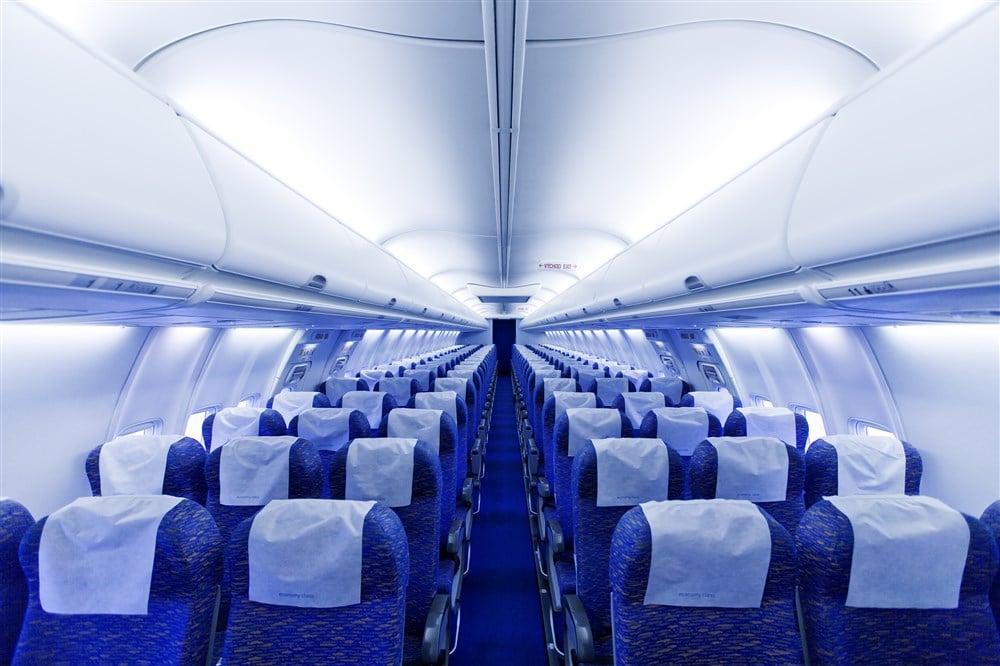
The post-pandemic revenge travel boom may be winding down, at least depending on which company you ask.
Revenge travel refers to the boom that occurred as Covid restrictions eased and people rebooked canceled travel plans and took advantage of their freedom to move around again.
Shares of American Airlines Group Inc. (NASDAQ: AAL), Alaska Air Group Inc. (NYSE: ALK), Southwest Airlines Co. (NYSE: LUV), United Airlines Holdings Inc. (NASDAQ: UAL), and Delta Air Lines Inc. (NYSE: DAL) are all showing three-month declines.
However, budget airlines such as Frontier Group Holdings Inc. (NASDAQ: ULCC) are warning that demand is on the decline. Another discount airline, Spirit Airlines Inc. (NYSE: SAVE), has been slashing fare prices to fill seats.
But airlines such as Delta and United, which specialize in international travelers and those who tend to spend more on a premium travel experience, say demand remains robust.
Airlines' Guidance on the Descent
When American Airlines reported third-quarter results on October 19, the company slashed full-year earnings guidance to a range between $2.25 and $2.50 per share, down from an earlier forecast of $3 to $3.75 per share.
That reduction came despite beating net income views, which you can see using MarketBeat's American Airlines earnings data.
It followed United Airlines' adjusted forecast calling for earnings in a range between $1.50 and $1.80 per share, well below analysts' consensus view of $2.06 per share. The company cited headwinds such as higher fuel prices and labor costs, and cancellations of flights to Tel Aviv.
Last week, Delta also slashed its full-year earnings outlook to $6 to $6.25 a share, down from an earlier range of $6 to $7.
As a group, airline stocks have declined in each of the past four months. You can track industry performance using the U.S. Global Jets ETF (NYSEARCA: JETS) chart, which shows a three-month decline of 29%.
Pre-Pandemic Travel Patterns Returning
After last year's better-than-average September and October bookings, analysts are seeing signs that indicate travelers are returning to normal autumn travel patterns. Industry-wide, there's more capacity this year than last.
Meanwhile, online travel agency Booking Holdings Inc. (NASDAQ: BKNG) is down 9.75% in the past month. That's despite analysts expecting the company to earn $144.81 a share, up 45%. Next year, the company is expected to grow earnings by another 17%, to $169.94 per share.
Two companies under the Booking Holdings umbrella, travel site Kayak and restaurant reservation site Open Table, recently laid off 80 employees. That's not necessarily a sign of financial trouble, especially since analysts still expect hefty earnings increases. However, it could signal the company is looking to cut costs to meet its own and analysts' targets.
Booking.com has been forming a flat base with a 13% peak-to-trough correction, which you can see on the Booking Holdings chart. The stock is down 5.59% for the week, as of October 19, after falling 3.28% the previous week.
As a whole, travel stocks have fallen sharply after Hamas' attack on Israel, which resulted in Israeli counterattacks.
Travel Stocks Typically Decline During Times of War
Travel stocks often decline during times of war due to several factors, including security concerns and uncertainty about safety. That's particularly true of regions affected by war, which explains cancellations of flights to Tel Aviv.
Additionally, wars can disrupt transportation infrastructure, causing wider cancellations and delays. Wars can also result in economic instability and higher fuel costs. This was a factor in early 2022 when Russia invaded Ukraine and appears to be a factor again.
For all those reasons, investors often sell off travel stocks in times of geopolitical strife.
These days, it's not just airline and travel booking sites that investors are scrutinizing; the hotel industry as a group has been consolidating but appears to be finding support at better levels than airlines.
Hotels More Resilient than Airlines
You can see that support on the Marriott International Inc. (NASDAQ: MAR) chart. Marriott, the largest hotel stock by market capitalization, is getting support well above its 200-day average, and is holding above lows between $189 and $190.
Hotels tend to outperform airlines during times of uncertainty due to their flexible booking policies, catering to local travelers, and diverse clientele, including construction workers and other workers traveling for essential business, such as healthcare.
Hotels also have lower operating costs than airlines, allowing them to adapt more easily to changing circumstances.
